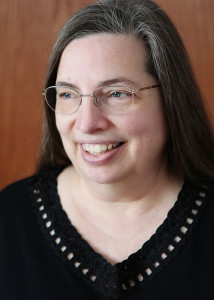Just like people in the neuro majority do not automatically understand social norms of autistics so it is that autistics do not automatically understand the social norms of the neuro majority. This is not complicated. Our different neurologies sort us out to have different norms when it comes to behaviors around friendships.
As a society we seem to operate on an assumption that the social ways of the majority are the right ways. We do not think about this or talk about this. We all define the standard by a majority rules mentality. Then, anyone who deviates from this standard is defined according to his deviation from the norm. Most people don’t even think about this. It is just the way society operates.
However, I think about it. In fact, I think about it a lot. I also believe others should think about this more than they do. If people thought about this more they would come to understand how wrong this not-even-talked-about societal assumption is and how it can lead to hurting people.
This is what I am thinking about just now:
It hurt me when as a little girl all the kids had friends, but I only had peers. The other kids were my peers. They could sign up to be my recess buddy or lunch partner for the day. We all knew these volunteers were really not my friends even though adults would call them that.
I knew that I was the only kid in the class who could never be counted as a peer to anyone else. I also could never be the recess buddy or lunch partner – only the kid who needed one.
This continues to hurt me as an adult. It hurts you too. You may not even know our societal assumption that the social construct of friendship based on the perception that neuro majority way of carrying on friendships is the right way hurts you. It doesn’t even matter if you know it. It will still hurt you. This construct leads to social injustice. And whether you are aware of it or not we are all hurt when social injustice is part of our world.
It is social injustice when one group of humanity is assumed to be capable of being the friend while a smaller group of people is assumed to only need a friend. When you only see me as needing a friend we all lose something. When I was younger and only saw you as being a friend (but not needing a friend) we all lost something.
You see, I can also BE a friend, and in fact AM friends WITH some pretty wonderful people in my life. It took me most of a lifetime to figure this out. Autistic people are just like neuro majority people in that we all need a friend and we all need to be a friend.
I am writing about it hoping you will think about this more. Turns out I am more like you than I am different. I am able to BE a friend just fine – even when I do not act the way the neuro majority act when making and being a friend. Imagine that!
WARNING: If you think about this long enough you may need to change your paradigm of friendship when it comes to autistics. Instead of thinking it is good, kind, noble or heroic to befriend an autistic you may wind up hoping that someday one of your friendships might be with an autistic. WITH. Equal footing. Friends with each other.
BOOKS BY JUDY ENDOW
Endow, J. (2019). Autistically Thriving: Reading Comprehension, Conversational Engagement, and Living a Self-Determined Life Based on Autistic Neurology. Lancaster, PA: Judy Endow.
Endow, J. (2012). Learning the Hidden Curriculum: The Odyssey of One Autistic Adult. Shawnee Mission, KS: AAPC Publishing.
Endow, J. (2006). Making Lemonade: Hints for Autism’s Helpers. Cambridge, WI: CBR Press.
Endow, J. (2013). Painted Words: Aspects of Autism Translated. Cambridge, WI: CBR Press.
Endow, J. (2009). Paper Words: Discovering and Living With My Autism. Shawnee Mission, KS: AAPC Publishing.
Endow, J. (2009). Outsmarting Explosive Behavior: A Visual System of Support and Intervention for Individuals With Autism Spectrum Disorders. Shawnee Mission, KS: AAPC Publishing.
Endow, J. (2010). Practical Solutions for Stabilizing Students With Classic Autism to Be Ready to Learn: Getting to Go. Shawnee Mission, KS: AAPC Publishing.
Myles, B. S., Endow, J., & Mayfield, M. (2013). The Hidden Curriculum of Getting and Keeping a Job: Navigating the Social Landscape of Employment. Shawnee Mission, KS: AAPC Publishing.
